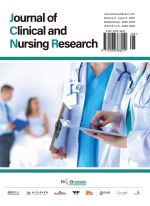Challenges and Opportunities in Cognitive Rehabilitation Services: Perspectives from Rehabilitation Professionals
Abstract
Objective: This study aims to explore the facilitating and hindering factors faced by rehabilitation professionals in providing cognitive rehabilitation services for patients with Post-Stroke Cognitive Impairment (PSCI) in China, offering empirical evidence for optimizing service models. Methods: Using purposive sampling, semi-structured interviews were conducted with 15 rehabilitation professionals from three tertiary hospitals and two community health service centers in Hubei Province from September to November 2023. Audio recordings were transcribed to obtain textual data, which were analyzed using Nvivo 12 software for coding. An inductive thematic analysis approach was employed to distill key themes. Results: The study identified multiple facilitating and hindering factors related to cognitive rehabilitation, summarizing them into four core themes and eight sub-themes: (1) Cognitive Screening: Presence of practical barriers and inadequate professional knowledge, which limited early detection and effective intervention for cognitive impairments; (2) Individualized Rehabilitation: Lack of patient -directed personalized interventions and multidisciplinary team collaboration, affecting patient engagement and rehabilitation outcomes; (3) Lack of Psychological Rehabilitation: The necessity of psychological interventions was emphasized, yet there is a significant scarcity of neuropsychological resources, limiting the implementation of psychological support; (4) Challenges of Community Continuity in Rehabilitation: Severe service discontinuity, with community healthcare institutions facing shortages of professional knowledge and equipment, resulting in patients being unable to receive continuous and effective rehabilitation support after discharge. Conclusion: Current PSCI rehabilitation services face issues such as insufficient staffing, ineffective multidisciplinary team collaboration, and a lack of community resources. Enhancing neuropsychological resources, establishing standardized MDT collaboration processes, and creating a referral system linking hospitals, communities, and families are essential to improve primary care capacity and enhance rehabilitation outcomes for patients.
References
Liu M, Zhou K, Li H, et al., 2015, Potential of Serum Metabolites for Diagnosing Post-Stroke Cognitive Impairment. Mol BioSyst, 11: 3287–3296.
Weterings R, Kessels R, de Leeuw F, et al., 2023, Cognitive Impairment After a Stroke in Young Adults: A Systematic Review and Meta-analysis. Int J Stroke, 18: 888–897.
Cui M, Jin Z, Wang Y, et al., 2024, Imaging, Biomarkers, and Vascular Cognitive Impairment in China: Rationale and Design for the VICA Study. Alzheimer’s Dement, 20: 8898–8909.
El Husseini N, Katzan I, Rost N, et al., 2023, Cognitive Impairment After Ischemic and Hemorrhagic Stroke: A Scientific Statement from the American Heart Association/American Stroke Association. Stroke, 54: e272–e291.
Rohde D, Gaynor E, Large M, et al., 2019, The Impact of Cognitive Impairment on Poststroke Outcomes: A 5-Year Follow-up. J Geriatr Psychiatry Neurol, 32: 275–281.
Blomgren C, Samuelsson H, Blomstrand C, et al., 2019, Long-Term Performance of Instrumental Activities of Daily Living in Young and Middle-Aged Stroke Survivors—Impact of Cognitive Dysfunction, Emotional Problems and Fatigue. PLOS One, 14: e0216822.
Wu Z, Su G, Lu W, et al., 2022, Clinical Symptoms and Their Relationship with Cognitive Impairment in Elderly Patients with Depressive Disorder. Front Psychiatry, 13: 1009653.
Quinn TJ, Richard E, Teuschl Y, et al., 2021, European Stroke Organisation and European Academy of Neurology Joint Guidelines on Post-Stroke Cognitive Impairment. Eur J Neurol, 28: 3883–3920.
Jeffares I, Rohde D, Doyle F, et al., 2022, The Impact of Stroke, Cognitive Function and Post-Stroke Cognitive Impairment (PSCI) on Healthcare Utilisation in Ireland: A Cross-Sectional Nationally Representative Study. BMC Health Serv Res, 22: 414.
Steihaug S, Johannessen A, Ådnanes M, et al., 2016, Challenges in Achieving Collaboration in Clinical Practice: The Case of Norwegian Health Care. Int J Integr Care, 16: 3.
Liljas A, Brattström F, Burström B, et al., 2019, Impact of Integrated Care on Patient-Related Outcomes Among Older People – A Systematic Review. Int J Integr Care, 19: 6.
Burrus BB, Krieger K, Rutledge R, et al., 2018, Building Bridges to a Brighter Tomorrow: A Systematic Evidence Review of Interventions That Prepare Adolescents for Adulthood. Am J Public Health, 108: S25–S31.
Slenders JPL, Verberne DPJ, Visser-Meily JMA, et al., 2020, Early Cognitive and Emotional Outcome After Stroke is Independent of Discharge Destination. J Neurol, 267: 3354–3361.
Geng H, Li M, Tang J, et al., 2022, Early Rehabilitation Exercise After Stroke Improves Neurological Recovery Through Enhancing Angiogenesis in Patients and Cerebral Ischemia Rat Model. Int J Mol Sci, 23: 10508.
Kanellopoulos D, Wilkins V, Avari J, et al., 2020, Dimensions of Poststroke Depression and Neuropsychological Deficits in Older Adults. Am J Geriatr Psychiatry, 28: 764–771.
Sun Y, Liu C, Zhang N, et al., 2022, Effect of Self-Management of Stroke Patients on Rehabilitation Based on Patient-Reported Outcome. Front Neurosci, 16: 929646.
Flury D, Massé F, Paraschiv-Ionescu A, et al., 2021, Clinical Value of Assessing Motor Performance in Postacute Stroke Patients. J NeuroEng Rehabil, 18: 102.
Lin DJ, Cloutier AM, Erler KS, et al., 2019, Corticospinal Tract Injury Estimated from Acute Stroke Imaging Predicts Upper Extremity Motor Recovery After Stroke. Stroke, 50: 3569–3577.
Lauzier-Jobin F, Houle J, 2022, A Comparison of Formal and Informal Help in the Context of Mental Health Recovery. Int J Soc Psychiatry, 68: 729–737.
Ned L, Tiwari R, Hess-April L, et al., 2020, A Situational Mapping Overview of Training Programmes for Community-Based Rehabilitation Workers in Southern Africa: Strategies for Strengthening Accessible Rural Rehabilitation Practice. Front Public Health, 8: 569279.
Li M, Zhu W, Luo Q, et al., 2022, Psychological Experience of Humanistic Care Among Medical Staff in Stroke Wards: A Qualitative Research Study Conducted in China. Front Psychiatry, 13: 791993.
Mirzaei T, Kashian N, 2020, Revisiting Effective Communication Between Patients and Physicians: Cross-Sectional Questionnaire Study Comparing Text-Based Electronic Versus Face-to-Face Communication. J Med Internet Res, 22: e16965.


